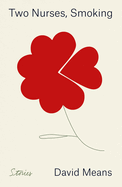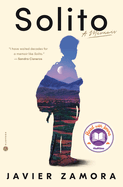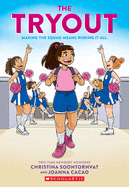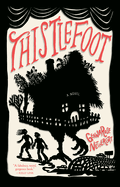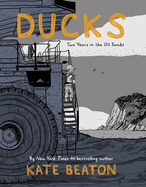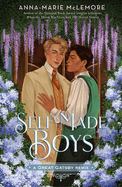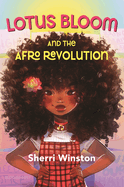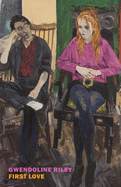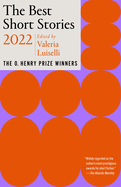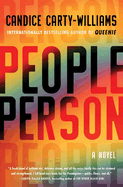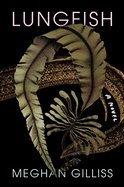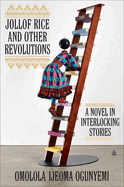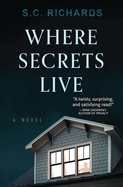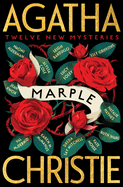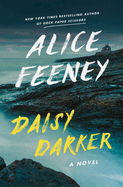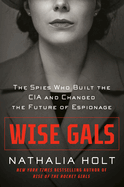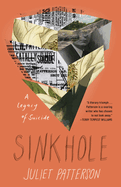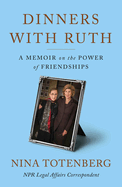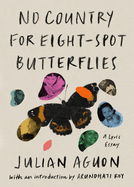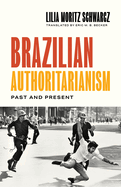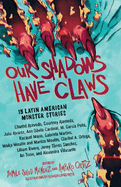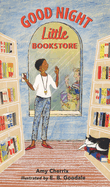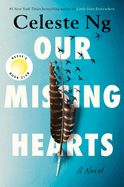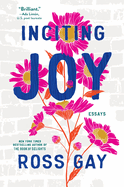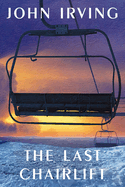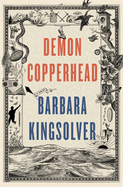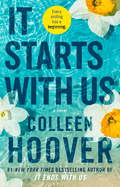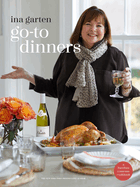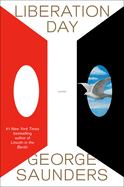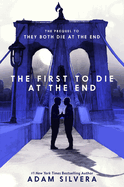Friday, September 16, 2022
Among the 25 books reviewed this week: Solito, Javier Zamora's "heart-pounding, vivid recollection" of his 3,000-mile trek from El Salvador to "La USA"; Two Nurses, Smoking by David Means, 10 "exceptional" stories that cover death, romance and the ravages of mental illness; the "heartfelt and hilarious graphic memoir" The Tryout, in which two-time Newbery Honoree Christina Soontornvat describes her experience auditioning with her best friend for the cheerleading squad, illustrated by Joanna Cacao; plus so many more!
Kate Beaton talks in The Writer's Life about shifting from her webcomic Hark! A Vagrant to her graphic memoir Ducks: Two Years in the Oil Sands, why she stopped drawing and how some comics creators online brought her back to her passion.
Two Nurses, Smoking
by David Means
Death, loss and the ravages of mental illness aren't the ingredients for light entertainment, but they make for a memorable reading experience in the exceptional story collection Two Nurses, Smoking by David Means (Instructions for a Funeral). These 10 stories are set in and around upstate New York and feature protagonists quietly tending to scars that life has inflicted upon them. The stories are formally inventive, and the lenses through which characters are seen aren't always conventional, as with "Clementine, Carmelita, Dog," told from the perspective of a "middle-aged dachshund with a short-haired, caramel-colored coat." The dog describes the grief of his widowed owner, Norman, before a stranger, thinking the dog is lost, takes her home.
Other pieces are equally affecting. In the title story, a male and female nurse form a romantic bond as they travel the mid-Atlantic region in a trailer that contains a "kidney pounder" machine and share stories of their pasts. "Vows" features another widower looking back on a marriage marked by his infidelity. In "The Red Dot," a restaurant owner is perplexed when his ex-wife, "horrifically afraid of water," sails to shore in a red kayak. And "Stopping Distance" is a stunning work about members of a bereavement group discovering "the Eros of grief." In one story, characters discuss Eadweard Muybridge, who figured out how to photograph objects in motion so that viewers could see the "amazing intricacy behind things you took for granted." These exceptional stories do the same. --Michael Magras, freelance book reviewer
Discover: David Means's Two Nurses, Smoking features 10 magnificent stories that sensitively investigate the effects of death, loss and mental illness.
First Love
by Gwendoline Riley
First Love, written by critically acclaimed English writer Gwendoline Riley (My Phantoms), is a razor-sharp portrait of everyday life in a volatile marriage. Thirtysomething Neve is struggling to cope with her sometimes tender but often cruel and unpredictable older husband, Edwyn. As she reflects on how best to avoid "managing" him, she thinks back to the relationships that have defined her life up to this point: her intimidating father; a commitment-phobic chronic fling; her often narcissistic mother.
Neve's pointed first-person narration is, at times, darkly funny and abrasively caustic. Often defined by a sparse, hard-edged prose style, her voice is startlingly unsentimental as it reassembles the pieces of her previous relationships. This fragmented structure is as fittingly jagged-edged as the novel's characters, who cannot seem to avoid hurting each other with their own vulnerabilities and desires. Some of these figures are primarily comedic--Neve's marriage-hungry mother and her self-indulgent ex--but others, such as her father and her husband, occupy a more threatening position that bring the tensions of relational power dynamics to the fore. Rather than producing a kind of callousness on Neve's part, however, these frequent acts of emotional devastation instead result in a raw nerve that pulses under the surface of her marriage, a sensitivity that keeps readers flinching at every new blow.
By turns discomforting and irreverently comic, Riley's novel is always insightful as it grapples with Neve's central dilemma: "People we've loved, or tried to: how to characterize the forms they assume?" --Alice Martin, freelance writer and editor
Discover: A focused and concise study of ill-fated love through the perspective of an intelligent and acerbic woman, First Love is a literary master class in character study.
Sugar Street
by Jonathan Dee
Sugar Street, Jonathan Dee's pitch-dark eighth novel, is an intense character study of a man in crisis. It's a bleak tale of someone running from a troubled past into an equally perilous future, and Dee (The Locals; A Thousand Pardons) succeeds in maintaining the tension about his character's fate throughout. The unnamed protagonist takes to the American road heading eastward, lacking ID, credit card or any discernible resources save for an envelope stuffed with exactly $168,548 in cash. He alludes often to unspecified transgressions, alternating between expressions of remorse and self-justification over those events.
Soon making his way to an unidentified city, he finds a barely habitable room in the home of a hard-edged woman named Autumn, paying her six months' rent in advance. Autumn and her secretive tenant play a cat-and-mouse game, with the suspicious landlord intermittently threatening eviction, while her boarder fitfully attempts to ingratiate himself with her.
What ensues is a precisely drawn portrait of the near futility of attempting to lead a life totally off the grid. The narrator, a once-privileged, highly educated (he has a law degree) white male, ruminates obsessively on his personal predicament while sharing acerbic observations on the "cesspool" that is modern life. With the skill of a virtuoso, Dee plays his character's shifting voice over its full emotional range--cunning, desperate, cynical, resigned and more.
At barely more than 200 pages, Sugar Street is a novel that easily can be consumed in a single sitting. But that brevity is deceptive, because it's far from a simple book, and the feeling of unease it induces makes it an unsettling reading experience. --Harvey Freedenberg, freelance reviewer
Discover: In this brief but dynamic novel, a man runs from his past and from contemporary American society.
The Best Short Stories 2022: The O. Henry Prize Winners
by Valeria Luiselli and Jenny Minton Quigley, editors
The O. Henry Prize has been awarded to short fiction since 1919. For The Best Short Stories 2022, guest editor Valeria Luiselli (Lost Children Archive) chose 20 stories, half of which happen to be in translation, that "straddle the familiar and the unfamiliar" and capture what she calls "a slice of the immediate present." The subjects of the stories include a lonely widower obsessed with domestic detail (Olga Tokarczuk's "Seams," translated by Jennifer Croft) and a Chicago teacher with an eccentric idea for connecting with a problem student (Shanteka Sigers's "A Way with Bea"). Chimamanda Ngozi Adichie and 'Pemi Aguda both focus on childbirth. Fable, magic realism, metafiction, sci-fi horror: the collection has it all.
Everyday threats and losses permeate these stories, with some themes recurring. Sexual misconduct--blatant or suspected--links several stories, such as Francisco González's "Clean Teen" and Samanta Schweblin's "An Unlucky Man," translated by Megan McDowell. In Joseph O'Neill's outstanding "Rainbows," a teenager's allegations cause her mother to reflect on how times have changed. The pandemic fueled four tales, among them Eshkol Nevo's "Lemonade," translated by Sondra Silverston, about an Israeli couple taking up amateur pornography to make ends meet, and Lorrie Moore's "Face Time," in which sisters interact with their hospitalized father via an iPad screen.
Closing interviews divulge the authors' inspirations. Unusual touches include first-person plural narration and a Spanish-language nursery rhyme template in Yohanca Delgado's "The Little Widow from the Capital." Best of all is Vladimir Sorokin's "Horse Soup," translated by Max Lawton, which is about a woman's relationship with a food-fixated ex-prisoner she meets on a train: surreal as a Kafkaesque novella. --Rebecca Foster, freelance reviewer, proofreader and blogger at Bookish Beck
Discover: These 20 prize-winning stories--from household names and newer voices alike--offer an introduction to international short fiction and engage with loss, parenting and Covid-19.
People Person
by Candice Carty-Williams
People Person is a darkly comedic novel of family from Candice Carty-Williams, author of the much-praised Queenie.
Nikisha, Danny, Dimple, Elizabeth and Prynce share very little in common--besides their mostly absent father, Cyril Pennington, who fathered five kids with four women in a five-mile radius in the span of 10 years. Nikisha and Prynce, the oldest and youngest of Cyril's offspring, share a mother; Dimple and Elizabeth boast birthdays just weeks apart in between the two. Danny, the second eldest, once served time in prison and now centers his life on his young toddler; Dimple is a somewhat desperate aspiring influencer with a problematic on-again, off-again boyfriend; Prynce juggles phone calls from any number of women each day; Elizabeth is on track to become a doctor and lives with her long-time girlfriend.
The five meet just once as young adults, when Cyril collects them all to explain, "This is so none of you ever buck up with each other on road and fall in love or have sex or any of dem tings." Each assumes that will be the last they see of one another--until one day Dimple calls Nikisha in a panic after maybe having accidentally killed her boyfriend when he tried to strangle her for breaking up with him.
The siblings' personalities weave together amid a plot as heartfelt as it is hilarious. Carty-Williams probes hard questions about race, microaggressions and abandonment within a larger, somehow softer story about what makes a family, what makes a friend and what happens when the two are one and the same. --Kerry McHugh, freelance writer
Discover: A heartfelt and hilarious novel of family, by blood and by choice, from the acclaimed author of Queenie.
Lungfish
by Meghan Gilliss
"Agnes--the first Agnes, who was my father's mother, not long dead, on whose island I find myself now, and whom I named my daughter after (if only to try to solve a mystery)--had always protected her love for her only child." Meghan Gilliss's contemplative first novel Lungfish examines such mysteries of family in an austere setting.
Her protagonist takes refuge from unnamed problems on an island off the coast of Maine, in her late grandmother's cabin, scraping a meager living from the rocks and the sea. In her fractured first-person narration, Tuck slowly releases information. She has brought along her young daughter, Agnes, named for the beloved grandmother. She is also accompanied by her husband, Paul, who is unwell. She has the field guides and religious texts her grandmother left behind, and little else. Paul's trouble and the issues they have fled on the mainland only gradually become clear, to Tuck as well as to readers.
Some chapters offer consecutive pages of narrative storytelling; some are very brief and take a more gestural or lyric approach, revealing Tuck's fragile grasp on her own story and history. Lungfish is a novel steeped in the harshness and beauty of the natural world, in which islands may be both real and metaphorical, where a woman may be accompanied by child and husband but also alone in navigating grief and responsibility. Tuck considers her relationships to her own father, mother, brother, her troubled husband and the growing Agnes, who "comes from different stock." Although this novel's setting is particular, its themes are universal. Atmospheric, haunted, but struck through with beauty and love, Lungfish is one to remember. --Julia Kastner, librarian and blogger at pagesofjulia
Discover: A woman wrestles with practical and existential questions of family and survival on an abandoned Maine island in this contemplative debut novel.
Jollof Rice and Other Revolutions: A Novel in Interlocking Stories
by Omolola Ijeoma Ogunyemi
The nearly 15 years Omolola Ijeoma Ogunyemi spent writing and rewriting proves to be tenacity well invested, resulting in her audacious debut, Jollof Rice and Other Revolutions: A Novel in Interlocking Stories. The 10 chapters here work as standalone pieces (many were previously published in prestigious journals and collections), but reading them together rewards audiences with mesmerizing intertwined narratives highlighting four Nigerian best friends and their extended circles through a century-and-a-half across continents and cultures.
Feisty, independent Aisha, Nonso, Remi and Solape meet as 10-year-olds entering an all-girls' boarding school; their sisterhood, inspired by a hazing prank and solidified by the death of one among them, is everlasting. After their Nigerian childhoods, Aisha, Nonso and Remi all immigrate to the United States, where each finds love (Aisha marries twice) and two have children. Aisha's marriage to Polish immigrant Andrew doesn't last, but her union with Ade engenders her greatest joys. Nonso flees her high-power New York investment banking job and her hazel-eyed husband (the latter only temporarily) and returns to Nigeria after 17 years of living as a foreigner. Remi binds herself to another Nigerian transplant with whom she has twin boys, who give her the strength to confront her absent yet still demanding father. Almost 70 years later, having all returned to their birth country, the beloved friends will rally to help save the life of Aisha's dying son--no matter the cost.
Born and raised in Nigeria, Ogunyemi deftly filters the personal, historical and political throughout her collection. For admiring readers, the radiance of Ogunyemi's debut hopefully signals more dazzling fiction to come. --Terry Hong, Smithsonian BookDragon
Discover: Nigerian writer Omolola Ijeoma Ogunyemi makes her splendid debut with 10 interlinked stories revealing four Nigerian best friends' lives across continents and decades.
Mystery & Thriller
Where Secrets Live
by S.C. Richards
Dark family secrets coupled with deep bonds between sisters suffuse the brisk Where Secrets Live, the third stand-alone novel from Minnesota author S.C. Richards (Dead Write and Write to Die, as Susan C. Richards). Liz and Meredith McCallister, raised by two stepparents, were closer than most sisters, their unity forged after their parents died. But over the past few months, Liz--whose life was fueled by "alcohol, sex, and denial"--pulled away from the more grounded Meredith, who desperately needed to confide in her younger sister. Then Liz finds Meredith shot to death.
The murder galvanizes Liz to investigate, especially when she learns that Meredith gave birth when she was a teenager and the baby was given up for adoption. The McCallisters are a wealthy but broken family: "Deep roots. Old money," as Liz puts it, and it has "taken generations to perfect our dysfunction." A substantial inheritance and other holdings turn Liz and her cousin Fred--who are the only beneficiaries--into suspects. Liz's growing relationship with Tom Martens, Meredith's first boyfriend, works well--he's now an agent with the Minnesota Bureau of Criminal Apprehension.
Where Secrets Live moves at a fast clip as the investigation forces Liz to get her life together. But she takes too many chances by not confiding in Tom. The denouement strains credibility as Richards indulges in multiple twists. Still, Where Secrets Live offers an insightful look at a young woman finally growing up. --Oline H. Cogdill, freelance reviewer
Discover: A young woman is forced to grow up as she investigates her sister's murder in the briskly plotted Where Secrets Live.
Marple: Twelve New Mysteries
by Naomi Alderman et al.
Authors who write everything from YA to romance to thrillers--Naomi Alderman, Leigh Bardugo, Alyssa Cole, Lucy Foley, Elly Griffiths, Natalie Haynes, Jean Kwok, Val McDermid, Karen McManus, Dreda Say Mitchell, Kate Mosse and Ruth Ware--each contribute a short story to Marple: Twelve New Mysteries. Putting a fresh spin on an iconic character, this glittering assortment of a dozen authors--in their own distinctive styles--presents a series of charming adventures that feature Agatha Christie's beloved elderly detective.
Miss Jane Marple finds murder happening everywhere--Italy, New York City, Singapore--as she travels the world, all thanks to the largesse of famous novelist Raymond West, her nephew. But no matter whether she is in exalted circles or among familiar neighbors in her village of St. Mary Mead, Miss Marple is indisputably herself. The amateur sleuth, tapping into her knowledge of human nature, manages to solve murders involving old school friends, wedding guests and fellow vacationers. She even solves a case in which murder only seems to have happened.
Clever and gentle, Marple is a lovely homage to Agatha Christie's often under-appreciated detective. As Miss Marple herself notes, "it wouldn't be the last time she was dismissed as a silly old woman." But as she works her magic, time and again her perspicacity shocks victims and investigators alike. Readers, whether longtime Christie fans or new to Miss Marple, will quickly come to appreciate her charm and intelligence. They are sure to love each story. --Jessica Howard, freelance book reviewer
Discover: Fans of Agatha Christie are sure to love this new collection of short stories, written by 12 contemporary authors, featuring the brilliant Miss Marple.
Daisy Darker
by Alice Feeney
A crumbling gothic mansion on a remote island, inaccessible for eight hours a day because of the tide; the reunion of family members who, at best, are estranged; the reveal of a will's contents: these all escalate Daisy Darker, the suspenseful fifth novel from British author Alice Feeney (Rock, Paper, Scissors; Sometimes I Lie). Add in no cellular service and an out-of-service landline. What could go wrong in this character-driven thriller?
The Darker family reluctantly gathers at grandmother Nana's Cornish tidal island estate to celebrate her 80th birthday: Daisy Darker; her older sisters, Lily and Rose; their divorced parents; and Lily's 15-year-old daughter, Trixie. Nana, believing she will die in the coming year, has decided to tell her family who will inherit her mansion and the fortune that she made writing a children's book based on Daisy. Aside from Nana, Trixie and (sometimes) Daisy, the Darkers are a decidedly unlikable family, prone to hatred and jealousies; they relish the destruction of happy moments. Ill as a child because she was "born with a broken heart," Daisy is accustomed to a lack of attention and affection from her mother and sisters. Lily, who resents any attention her teenage daughter receives, engages in emotional abuse toward Trixie.
As unappealing as these characters are, Feeney gives them quirks, ones that make their motives and secrets riveting and that propel this brisk plot with all of its surprising twists. Feeney unabashedly enters Agatha Christie's And Then There Were None territory when family members are killed, their deaths accompanied by macabre poems. At the same time, she makes the plot of the captivating Daisy Darker uniquely her own. --Oline H. Cogdill, freelance reviewer
Discover: A suspense-laden homage to Agatha Christie's And Then There Were None, Daisy Darker skillfully explores an unlikable family's reluctant reunion.
Science Fiction & Fantasy
Thistlefoot
by GennaRose Nethercott
A magical family legacy touched by tragedy brings estranged siblings together to battle a dark force in Thistlefoot, a graceful, offbeat folk ballad of a novel from poet and folklorist GennaRose Nethercott (The Lumberjack's Dove).
Siblings Bellatine and Isaac Yaga haven't seen each other in six years when they reunite to accept a surprising inheritance: a house on a chicken's legs. Woodworker Bellatine bonds with the mobile, sentient structure and names it Thistlefoot after their mother's assertion that people in their family are "born with thistles in our feet. It's why we're always traveling." Isaac, a sticky-fingered street performer with a preternatural gift for mimicry, agrees to give his half-share to Bellatine if she spends a year helping him perform one of their puppeteer family's shows. She agrees but fears proximity to the puppets may provoke the Embering, a dangerous power that lives in her hands. On tour with Thistlefoot as both stage and transportation, they soon find themselves trailed by the Longshadow Man. This malevolent being with ties to their lost family history will stop at nothing to see Thistlefoot and the Yagas destroyed.
Nethercott's rich reimagining of the Baba Yaga myth is accented by Jewish folktales and combines gorgeous imagery and delicate family dynamics with a good-versus-evil struggle that is generations in the making. The Yaga siblings' stories are intercut with scenes from the life of Baba Yaga as told by Thistlefoot itself. This imaginative, lyrical Slavic fantasy will captivate fans of Naomi Novik's Spinning Silver or Katherine Arden's The Bear and the Nightingale. --Jaclyn Fulwood, blogger at Infinite Reads
Discover: GennaRose Nethercott's dark, poetic fantasy novel combines the Baba Yaga myth with Jewish folktales and a rip-roaring battle of good versus evil.
Graphic Books
Ducks: Two Years in the Oil Sands
by Kate Beaton
Kate Beaton's many devotees revere her for the award-winning series Hark! A Vagrant. Perhaps lesser known is the provenance of those erudite, playful histories: they began as a webcomic while Beaton worked in the oil fields of Alberta, Canada. In Ducks: Two Years in the Oil Sands, Beaton draws on those crucial experiences to create an impassioned, astonishing memoir.
In 2005, Beaton was 21, a university graduate with an arts degree. Beloved, beautiful Cape Breton, Nova Scotia, is home but lacks employment opportunities. Fish, coal and steel exports are gone: "Its main export is people. It's not a unique story in Atlantic Canada." Beaton is desperate to pay off "debilitating student debt" and follows "the good job" west into harsh, isolating territory. She moves from site to site--each seemingly more remote. Plenty of her coworkers share geographical origins (East Coast) and economic goals ("the good money, the better life"). Her revelations about people, relationships and her own self prove both wrenching and reassuring.
In immersive black, white, gray and blue-tinted panels, Beaton bears powerful witness to desperate adversity and redeeming goodness with sharp candor and unexpected humor. Her panels are strikingly emotive: furrowed eyebrows demanding attention, an undecorated artificial Christmas tree on its side, clenched fingers during a difficult conversation. As if to remind readers of what's happening beyond, Beaton regularly inserts zoomed-out landscapes underscoring the devastating cost of such lucrative opportunities beyond the human toll. Beaton's memoir, despite an almost 450-page count, is a mesmerizing story that readers will want to devour in a single sitting. --Terry Hong, Smithsonian BookDragon
Discover: Kate Beaton's empathetic graphic memoir, chronicling her work in the harsh, isolated oil fields of western Canada, is a masterpiece.
Biography & Memoir
Solito
by Javier Zamora
Solito is Javier Zamora's poetic memoir of his 3,000-mile trek from El Salvador to "La USA" as an undocumented migrant. This heart-pounding, vivid recollection of a desperate path to a better life takes readers every terrifying step of the way.
In a first-person, present-tense narrative, nine-year-old Zamora--whom his Abuelita Neli calls "Javiercito"--recalls preparing for "the trip." It is 1999, and he leaves his beloved Grandpa, Abuelita and Tía Mali to join his Mom and Dad in California. He imagines flying like Superman to a reunion with his parents after his family pays Don Dago, the coyote who, four years prior, safely guided his Mom north. Stoic, resilient Javier seems older than nine, but Zamora (Unaccompanied) reveals the shy boy who struggles to tie his shoes, fears flush toilets and fantasizes about ice-cold Coke. The trek becomes an increasingly harrowing two-month journey by boat, bus and pickup truck--but mostly step by step. Lonely Javier establishes a protective "fake family" with Patricia and her daughter, Carla, as well as a man named Chino. Successive "polleros" guide them, handing the travelers off like a flock of chickens. Their fear of "La Migra" heightens as they approach what Zamora calls "Gringolandia."
Zamora creates a sense of immediacy with vibrant descriptions: the moon like "a lopsided egg," rationed water sloshing in plastic jugs with duct-tape handles, sweltering days turning to freezing nights and the group of migrants walking in double lines like a "fat centipede." Javier and his "family," undaunted by two failed crossing attempts and a terrifying detention, repeatedly whisper: "Está bien." Miraculously, this "it's okay" comes true. --Cheryl McKeon, Book House of Stuyvesant Plaza, Albany, N.Y.
Discover: This suspenseful memoir presents the heartbreaking loneliness and fraught dangers as a brave nine-year-old migrant boy travels from El Salvador to "La USA" to join his parents.
Like a Rolling Stone: A Memoir
by Jann S. Wenner
Few people have interacted with more celebrities, rock stars and politicians than Jann Wenner, founder of Rolling Stone. Even fewer possess Wenner's prodigious wordsmanship; in his soaring memoir, Like a Rolling Stone (clocking in at nearly 600 pages), he captures these encounters, fights and friendships with much verve and economy. A Berkeley dropout, Wenner founded Rolling Stone in 1967. It was revolutionary in that, amid a sea of music fanzines, it took music, especially rock 'n' roll, seriously--particularly when Wenner began to fill his writing staff with such future heavyweights as Hunter S. Thompson and Tom Wolfe. Photographer Annie Leibovitz joined the staff in 1970.
In addition to lengthy interviews and music articles, Rolling Stone ran long-form journalism pieces on Charles Manson; the 1968 Chicago riots; Karen Silkwood's suspicious death; and, later, AIDS, wars, climate change, prison reform and politics. Wenner digs deep into the magazine's political side. He delights in sharing his friendships with Springsteen, Bono, Dylan, John Lennon and Yoko Ono. He also gives concise insight into his friendships with Jacqueline Onassis ("She was a gossip, and I heard some rarefied stuff") and John F. Kennedy Jr.: "[H]e was polite, funny, and an all-around terrific guy. He also had a temper, was impetuous, and sometimes reckless." In 1995, Wenner ended his marriage of more than 25 years when he fell in love with Matt Nye and came out as gay. In 2019, he sold Rolling Stone.
Wenner's enormously influential life is masterfully told and should be a treat for pop culture fans and historians alike. --Kevin Howell, independent reviewer and marketing consultant
Discover: The founder of Rolling Stone magazine recounts his wildly influential life, and his interactions with a who's-who of rock stars, celebrities and politicians.
Wise Gals: The Spies Who Built the CIA and Changed the Future of Espionage
by Nathalia Holt
The CIA, by its nature, and its personnel are often shrouded in secrecy. Among its many unsung heroes is a sharp, accomplished group of women who were instrumental to the agency's founding and early years. Wise Gals, the fourth book from Nathalia Holt (The Queens of Animation), draws back the curtain on five women who shaped the agency's purpose and procedures, fought for pay equity and did critical work in the field.
Holt begins with the Office of Strategic Services, the CIA's predecessor agency, giving readers a glimpse into U.S. politics around intelligence services. Founded during World War II and disbanded after the war's end, the OSS employed a surprising number of women, including Adelaide Hawkins, Jane Burrell and Eloise Page, who started as the longtime assistant to OSS head "Wild Bill" Donovan. These women, along with officers Mary Hutchison (whose husband was also CIA) and Elizabeth Sudmeier, form the focus of the book. Holt vividly chronicles their careers, including multiple incidents from the field: missions gone wrong (or right), meeting and controlling assets and cracking codes and ciphers. Holt also details the work of the Petticoat Panel, a massive effort (involving Sudmeier, Hutchison, Hawkins and Page) to report on and improve the status of women at the agency. At every turn, Holt showcases the women's intelligence, knowledge and grit, while also highlighting the ways they didn't get the recognition they deserved.
Insightful and gripping, Wise Gals is a fitting tribute to the brilliant women who shaped the American intelligence landscape. --Katie Noah Gibson, blogger at Cakes, Tea and Dreams
Discover: Nathalia Holt's sharp, well-researched fourth book praises the contributions of the CIA's unsung "wise gals" and their fight for equity.
Sinkhole: A Legacy of Suicide
by Juliet Patterson
Shortly after her 77-year-old father hanged himself from a bridge near his home in St. Paul, Minn., Juliet Patterson embarked on a quest to unearth the source and meaning of that event, as well as the deaths of both of her grandfathers, also by their own hand. The result is Sinkhole: A Legacy of Suicide, a spare, sensitive evocation of Patterson's experience of grief, paired with an insightful work of family and regional history.
Following her father's death, Patterson made numerous trips to the small southeast Kansas town of Pittsburg, where her parents grew up and met. It was there that her paternal grandfather, Edward White Patterson, who served two terms in Congress as a New Deal Democrat in the late 1930s, shot himself in 1940, and her maternal grandfather, William McCluskey, only recently retired in 1967, drowned himself in a lake after slashing his wrists.
Not content to limit herself to these tragic family stories, Patterson also explores the social and economic history of Pittsburg and its environs. The area once was home to an extensive coal mining industry whose environmental legacy includes the phenomenon that provides the book's title.
More than 47,500 Americans die by suicide each year, and the rate of suicide increased by 33% between 1999 and 2019, so the problem of suicide has become an urgent one. Patterson (Threnody) brings a poet's sensibility as she excavates her own raw emotions alongside passages of clear-eyed journalism and creative nonfiction. Sinkhole is a painfully honest and sobering work that may provide insight and comfort to those facing a similar tragedy. --Harvey Freedenberg, freelance reviewer
Discover: A daughter brings a poet's sensibility in her attempt to solve the mystery of suicide that has darkened two generations of her family.
Dinners with Ruth: A Memoir on the Power of Friendships
by Nina Totenberg
Longtime NPR legal affairs correspondent Nina Totenberg met Ruth Bader Ginsburg in the 1970s, early in both their careers. Totenberg's thoughtful first book, Dinners with Ruth, traces their five-decade friendship. But it also provides broader meditations on friendship and building community, as well as a candid glimpse into Washington insider politics and the challenges of being a woman in that male-driven environment.
Totenberg begins at the end: "The last time I saw Ruth, it was for supper." She gives a brief overview of her long bond with Ginsburg, which lasted through grief, professional challenges, health struggles and the Covid-19 pandemic, and included many meals together. She then takes readers on a tour of her early life and family history as well as Ginsburg's, noting their similarities along with the deep differences in their backgrounds. The book continues in this way: it is primarily Totenberg's story, but she shares biographical information about Ginsburg, weaving the facts together with anecdotes from their friendship.
Ginsburg herself appears much as readers may have already seen her: a fierce intellect with a wry sense of humor and a deep commitment to the law. But Totenberg's warm recollection of their years together reveals a different side of Ruth: her love for shopping and French bouillabaisse, her appreciation of gossip, her tenacity in being there for friends despite illness, work and other challenges. Readers will come away with a fuller portrait of RBG, but also a wonderful rendering of Totenberg's friendships and perhaps a deeper appreciation for their own. --Katie Noah Gibson, blogger at Cakes, Tea and Dreams
Discover: NPR correspondent Nina Totenberg chronicles her long connection with Ruth Bader Ginsburg and muses on other deep friendships.
No Country for Eight-Spot Butterflies: A Lyric Essay
by Julian Aguon
Indigenous human rights lawyer Julian Aguon (The Properties of Perpetual Light) is passionate about protecting his homeland of Guam, which is threatened by climate change and military expansion. No Country for Eight-Spot Butterflies, his tender collage of autobiographical vignettes and public addresses, inspires activism and celebrates beauty worth preserving.
The U.S. Department of Defense's plan to site more Marines and firing ranges on Guam will destroy more than 1,000 acres of limestone forest--home to endemic and endangered species, including the Mariana eight-spot butterfly. Aguon has been a lead litigator in appeals rising all the way to the U.S. Supreme Court. Rejecting fatalism, he endorses peaceful resistance. Grief is both personal and collective here. Aguon lost his father to cancer when he was a boy. A member of the Chamorros, he feels affinity with the marginalized; he even discovers that two ancestors escaped from a leper colony. Among his oft-quoted heroes are Toni Morrison and Arundhati Roy (the latter provides an introduction). Feminists and social activists taught him that racism and other forms of oppression are a "distraction" from the "work of turning our lives into art." Aguon transforms life into art by rendering certain memories into poems--meeting Sherman Alexie, whose books made him want to write; childhood adventures; and his grandmothers' cooking.
Two commencement speeches, a eulogy and an interview round out this varied and heartfelt collection. The author's deep love for Guam's people and nature shines through. Despite sadness and setbacks, he writes, "eyes wide with wonder is a perfectly good definition of magic." --Rebecca Foster, freelance reviewer, proofreader and blogger at Bookish Beck
Discover: Both lament and praise song, this passionate collection of essays, poems and speeches by an Indigenous writer from Guam inspires activism and celebrates nature's beauty.
Political Science
Brazilian Authoritarianism: Past and Present
by Lilia Moritz Schwarcz, transl. by Eric M.B. Becker
"Never has the present so closely resembled the past" in Brazil, according to anthropologist and historian Lilia Moritz Schwarcz's provocative study, Brazilian Authoritarianism: Past and Present. Schwarcz wrote the book--originally published in 2019 in Portuguese--"in the heat of the moment" after the November 2018 presidential election that brought far-right candidate Jair Bolsonaro to power. Appearing now for the first time in English, thanks to translator Eric M.B. Becker, the book presents Schwarcz's (The Emperor's Beard) main premise--that "a country's present is entirely impregnated by its past." Brazil's was shaped by its violent history as a Portuguese colony, Schwarcz writes, with slavery at the heart of it. It was within the "plantation model" of the powerful landowners that the "hierarchies of command and subordination became ingrained."
Citing a current trend of "historical revisionism... that seeks to return to a nostalgic and authoritarian version of a Brazil that never existed," Schwarcz explores more than 500 years of Brazilian culture and history to identify eight elements that continue to plague this young democracy: racism, bossism, patrimonialism, corruption, social inequality, violence, gender issues and intolerance. Brazil became a democracy in 1988, but the strong grip of political and social models, both authoritarian, threatens to negate the liberal strides made. Schwarcz ultimately calls for better education and a "more inclusive and egalitarian national political vision" as the antidote to the political, economic, social and cultural crises the country finds itself in today. Brazilian Authoritarianism is a robustly researched and elegant argument for a more promising future. --Peggy Kurkowski, book reviewer and copywriter in Denver
Discover: A dissection of Brazil's bleak history of slavery, racism and authoritarian politics culminates in a call to action for citizens to imagine--and realize--a more inclusive and just society.
Poetry
Normal Distance
by Elisa Gabbert
Reading Normal Distance from poet, essayist and critic Elisa Gabbert (The Unreality of Memory; The Word Pretty; The Self Unstable) is like overhearing one side of a conversation conducted by a brilliant and intimate friend. There is no affectation and no aspect of performance, but the way the full range of Gabbert's curiosity and intellect can be so easily accessed somehow feels like a magic act. Each of the 35 poems in this collection is made up of prose-like lines, some that meander and others that slice the air with near-painful precision. Like jotted lines in a commonplace book or a Notes app--but sharper and more prescient--the genuine wonder of it all is not diluted by its ordinariness.
Most of the poems rely heavily on the first-person voice, as in "Wild Animals (Normal Distance)": "I think a little threat is necessary for happiness./ I think sometimes we want to be threatened, sometimes/ we want to be the threat./ Sometimes when I'm standing what feels like a normal/ distance from a person, they keep seeming to edge away." A few lines later Gabbert writes, "I'm trying to decide if Wittgenstein was sexy. It's not/ obvious./ I think the answer is 'yes' or 'unanswerable.'/ I think delicate people are frightening./ But I also think fear is erotic." Each line is delivered with the same frank tone, simultaneously vulnerable and detached, and each builds on the next, ultimately creating a collection that defies logic and insists on praise. --Sara Beth West, freelance reviewer and librarian
Discover: Normal Distance is like jotted lines in a commonplace book or a Notes app--but sharper and more prescient--the genuine wonder of it all not diluted by its ordinariness.
Children's & Young Adult
The Tryout
by Christina Soontornvat, illus. by Joanna Cacao
Two-time Newbery Honoree Christina Soontornvat (All Thirteen; A Wish in the Dark) authors the heartfelt and hilarious graphic memoir The Tryout, illustrated by Joanna Cacao.
Starting middle school can be confusing--new faces, older kids and a new set of social rules everyone else seems to know. Christina, a Thai American girl growing up in Grangeview, Tex., has friends but yearns for popularity. She believes being popular would mean she is the same as everyone else--no one would make fun of her lunches or mispronounce her last name. Her best friend, Iranian American Megan, agrees. Megan is getting serious enough about her love of gymnastics and tumbling to consider competing. As a natural outgrowth of this passion--for Megan, that is--the girls decide to try out for the cheerleading team. Perhaps, if they make it, their popularity dreams will come true.
Soontornvat's memoir is cringe-worthy in the best possible way. She excels at lightheartedly and earnestly recalling all those awkward, embarrassing middle school moments. The Tryout is brought to life with gorgeous illustration from self-taught comic artist Joanna Cacao. Cacao's layout of consistent, unbroken panels and occasional squiggly-lined dream/flashback panels keeps the story flowing and well-paced. Soontornvat juxtaposes humor and fun with scenes of racism and microaggressions, showing how Christina's friendship with Megan is successful in part because the girls understand one another through shared experiences. The Tryout is an inspiring and insightful graphic memoir for anyone who simply wants to fit in. --Kyla Paterno, freelance reviewer
Discover: Thai American Christina and her best friend decide to try out for their middle-school cheerleading squad in this hilarious and inspiring graphic memoir.
Self-Made Boys: A Great Gatsby Remix
by Anna-Marie McLemore
In a stunning queer YA reimagining of The Great Gatsby, National Book Award long-listed author Anna-Marie McLemore (The Mirror Season; Dark and Deepest Red) enraptures readers with teen characters attempting to thrive in 1920s Manhattan high society while covertly expressing their true identities.
Narrator Nicolás Caraveo is a transgender Mexican American whose cousin, Daisy, convinces him to leave Wisconsin and join her in New York City. When Nick arrives, he is shocked that his brown-skinned cousin presents herself as white and lies about herself to beau Tom Buchanan. Nick feels like an outsider and is dismayed by Daisy, her fashionable friends and their seemingly vapid lifestyle. Yet he soon becomes enamored with his socialite neighbor and fellow trans man Jay Gatsby. With Gatsby's help, Nick learns to see through the shiny veneers into the true identities their peers hide to remain safe. As a friend tells Nick, "There'll always be someone trying to make you apologize for something about who you are. But you learn not to feel it quite as much."
McLemore's depictions of richly hued fashion and lavish parties paint a vivid picture of this tony era. An overt mystery--Daisy's loss of a $350,000 pearl necklace gifted to her by Tom--combined with the hidden motivations of myriad characters riddles the plot with excitement and uncertainty. Meanwhile, the veracity of Nick's first-person limited point of view is brought into question by Daisy's occasional private letters to loved ones. Self-Made Boys draws back the proverbial curtain to reveal the complicated, painful and desperately romantic yearnings of youth. --Kieran Slattery, freelance reviewer, teacher, co-creator of Gender Inclusive Classrooms
Discover: A dynamic queer YA retelling of The Great Gatsby features a cast of teens finding covert ways to celebrate their true identities in the 1920s Manhattan social scene.
Lotus Bloom and the Afro Revolution
by Sherri Winston
Sherri Winston (President of the Whole Fifth Grade) gives middle-grade readers a sweet and uplifting novel about a Black tween who stands up for what's right in Lotus Bloom and the Afro Revolution.
Twelve-year-old Lotus Bloom is known for a few things: her gift for the violin, retro style, "peace-and-love vibe" and the "wooly mammoth," her "bodacious" afro. Lotus's undeniable talent and love for the violin earns her a spot at the newly built Atlantis School of the Arts, taking her away from best friend Rebel and their Miami Beach public school. On the first day of classes, seventh-grader Lotus is transferred from beginners' orchestra to advanced, where she is awarded first chair and the role of concert master. Ninth-grader Adolpho doesn't take his unseating well and physically accosts Lotus by throwing paper airplanes into her hair. When Lotus speaks up about the abuse, she is later told that she and the wooly mammoth are in violation of dress code. Should Lotus change her beloved hair and stay quiet? Or should she drop the peaceful demeanor, fight back and risk her spot at the school?
In this outstanding, inspiring novel, Winston covers topics of friendship, racism, discrimination, self-awareness and social justice. She thoughtfully tackles these issues, making them approachable for younger middle-grade readers and relatable for anyone older. Lotus Bloom and the Afro Revolution shows Black children and adults how to take a stand and show up for themselves. --Natasha Harris, freelance reviewer
Discover: In this inspiring novel, a tween Black girl struggles to find her voice and stand up against her school's discriminatory dress code.
Our Shadows Have Claws
by Yamile Saied Méndez and Amparo Ortiz, editors, illus. by Ricardo López Ortiz
Our Shadows Have Claws is an inclusive horror anthology compiled by Pura Belpré Author Award winner Yamile Saied Méndez (Furia; Where Are You From?) and Amparo Ortiz (Blazewrath Games). Fifteen chilling stories featuring monsters from different Latine cultures explore themes of identity, love, grief and oppression.
Acclaimed YA Latine authors, including Claribel A. Ortega, Chantel Acevedo and Lilliam Rivera, contribute spine-tingling stories about a variety of monsters, such as "La Madrina," a godmother who leads souls to the beyond; a Haitian "lougarou" who hunts the NYC subways; and "el duende," a green forest elf that steals sleeping children's memories. This dynamic collection combines traditional fantastical creatures like bogeymen and vampires--"los fríos"--with metaphorical monsters like environmental destruction, misogyny and racism. While some stories take place in the United States, readers will find stories set throughout Latin America. This collection prioritizes LGTBQ+ characters, Indigenous peoples and women while also giving space to people without families, homes and a sense of belonging.
Comics artist Ricardo López Ortiz's black-and-white artwork depicts each story's monster with exaggerated lines and grotesque features, building suspense and fear before the stories even begin. One particularly gruesome illustration leads into Raquel Marie's "La Patasola," an equally grisly story about a California school's camping trip that turns deadly when a vengeful Colombian spirit makes an appearance. Marie's horror elements are top notch--a "mangled corpse of a headless deer" foreshadowing what's yet to come--but she also easily infuses queer issues, fighting cultural stereotypes and societal expectations for women versus men. These stories are macabre, imaginative and noteworthy. --Lana Barnes, freelance reviewer and proofreader
Discover: This inclusive anthology of 15 chilling horror stories features monsters from different Latine cultures and explores themes of identity, love, grief and oppression.
Good Night, Little Bookstore
by Amy Cherrix, illus. by E.B. Goodale
Readers shepherd an independent bookstore through its end-of-day routine in the reverential and cozy rhyming bedtime book Good Night, Little Bookstore, written by Amy Cherrix (In the Shadow of the Moon) and illustrated by E.B. Goodale (Windows).
A woman checks her watch as she wheels a sidewalk book cart into Little Bookstore. "Good night, little bookstore. Time to close!" So begins the process of shutting down the bustling shop at the end of the day. A toddler reaches for one last picture book while adult patrons gather their purchases. Employees tidy books and bag the recycling as a tuxedo cat slinks among the shelves. A narrator issues "Good nights" all around the shop until finally a bookseller locks the door behind her. "Good night, little bookstores, near and far./ Dream big, dear readers, wherever you are."
The comforting cadence of the gentle rhymes along with the methodical closing of the Little Bookstore recall the reassuring tone of the Margaret Wise Brown classic. Cherrix, a former bookseller, employs concise text and onomatopoeic echoes that punctuate several illustrations. Goodale uses a variety of mediums including crayon and oil paint to deliver peaceful artwork with muted colors and warm undertones. She also utilizes shifts in perspective to lend an extra intimacy to the reading experience. Pages are dotted with satisfying details familiar to independent bookstore shoppers; readers might spot spoof covers nestled among the shelves and some may notice that the Little Bookstore looks an awful lot like Boston's now closed Curious George Store (there's even a man in a yellow suit!).
Children--and caregivers who shop locally--should delight in this charming peek into a beloved community space. --Kit Ballenger, youth librarian, Help Your Shelf
Discover: Readers follow a corner book shop through its closing routine in a delightful and appreciative nod to Margaret Wise Brown's classic bedtime tale that is ideal for indie shops and their loyal patrons.
Coming Soon
The Writer's Life
Kate Beaton: 'I Stopped Drawing... I Lost Myself'
 |
|
| Kate Beaton (photo: Stephen Rankin) |
|
Canadian graphics creator Kate Beaton drew international praise for her bestseller Hark! A Vagrant! series in which she humorously, cleverly showcased famous figures. She pivots from the historical to the personal in a deeply revealing memoir, Ducks: Two Years in the Oil Sands (Drawn & Quarterly, $39.95, reviewed in this issue), about working as one of very few women in the male-dominated oil fields of Alberta, Canada. In immersive black, white and blue-tinted panels, Beaton bears powerful witness to desperate adversity and redeeming humanity with sharp candor--and unexpected, but gratifyingly welcome humor.
Some 15 years have passed since the events of Ducks. Your Drawn & Quarterly publisher, Peggy Burns, mentioned that this was six years in the making--and that it went through many incarnations: quick Twitter comics, a script, thumbnails, vignettes, until reaching this outcome. What prompted this creative pivot from your comical series to memoir?
I had been sort of winding down on Hark! A Vagrant. It had been going on for a long time. I think it was ending even before I realized it was because I was busy finding myself, doing other things and I was starting to look elsewhere. So it came to a natural end while I was working on Ducks.
To be honest, my sister [Becky] got sick. When she got sick, the heart for making Hark! A Vagrant just fell out of me. I didn't feel like writing jokes. So that was the end of that. I was glad I had Ducks already in motion, a project that I had to keep going. If I hadn't, I might have just totally fallen apart.
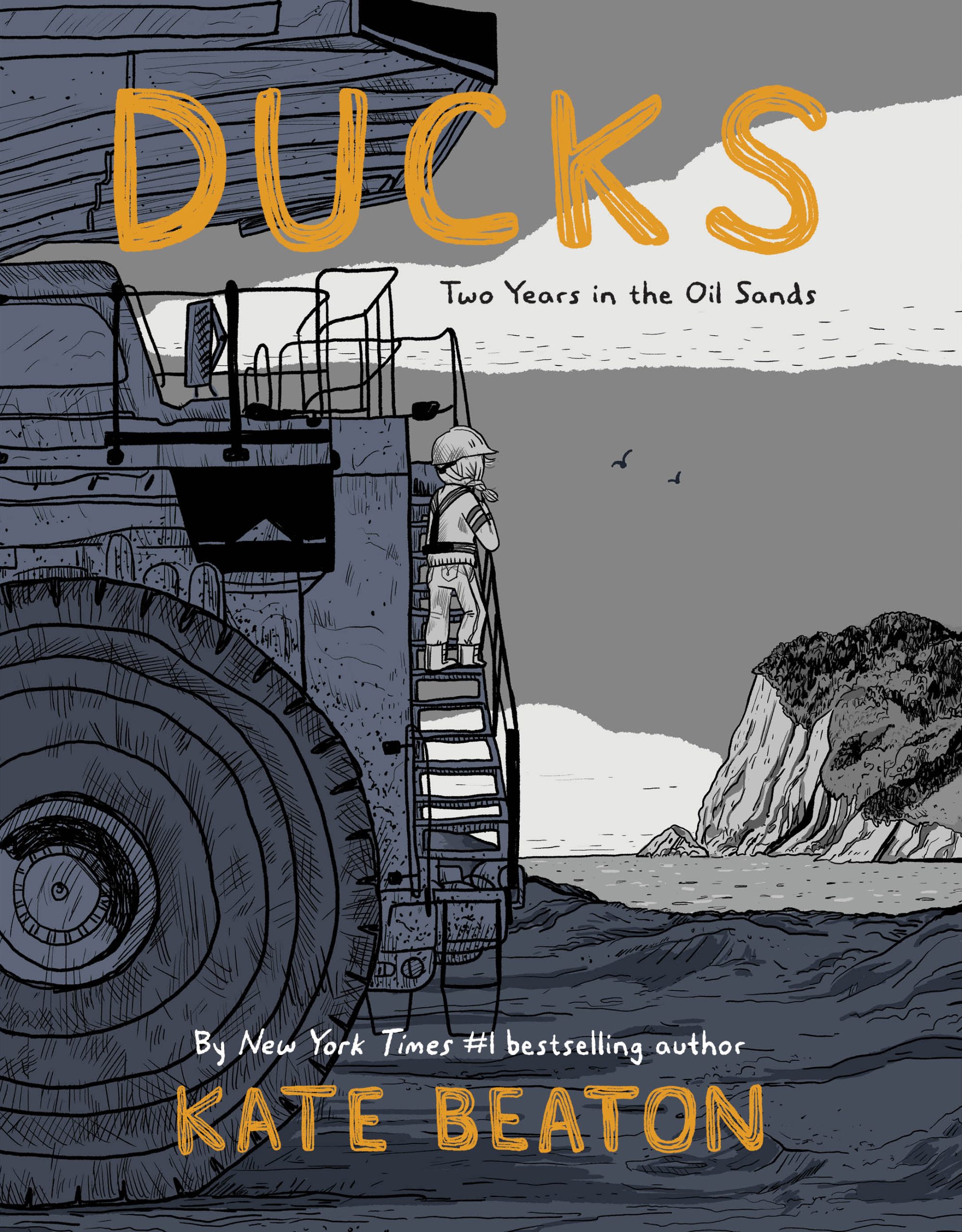 I noticed your loving mention of Becky on the Hark! A Vagrant online archives: "I'd like to dedicate this archive to my sister Becky Beaton, who we lost in 2018, and who always believed in me."
I noticed your loving mention of Becky on the Hark! A Vagrant online archives: "I'd like to dedicate this archive to my sister Becky Beaton, who we lost in 2018, and who always believed in me."
How do I put this... at the end, well, she was so tied up with the reason I was ending [the series], so a dedication just seemed fitting there. She was the first person I ever made comics with. A long time ago...
This is also your first long-form project. Could you talk about how this creative process differed from that of your previous work?
Yeah, it was very very different. I was so comfortable in what I had been doing before, so I didn't have a lot of confidence [with the new format] and I did a lot of second guessing. Even though I had confidence in what I was making, I found myself taking big steps forward and then looking at what I made and thinking, "Is this any good, or...." Whereas before I could be very sure of what I was doing, I had to approach [Ducks] very methodically. I wrote everything out, then went over everything again and again. I didn't use thumbnails. After I had something written down, I would look at each section with new eyes. I feel like the work went through the wringer quite a few times before it finally was good enough to put into finished panels.
I was always trying to make sure I was doing the work the right way. I didn't want to be working on something so long that was so important to me and get it wrong. I tried to look up how other people do graphic novels--and discovered that everyone does their work differently.
Speaking of your previous work, Hark! A Vagrant debuted on the web when you were in the oil sands. Some of that backstory is included in Ducks. Would you share a bit more about its provenance?
I drew comics for my school paper when I was at university and I enjoyed that. But when I went to the oil sands, I stopped drawing, pretty much for the first full year, because there was nowhere to put it, there was no point. You'll notice in Ducks that the first year was especially harsh. And I felt that. I lost myself in all that.
Then I went to Victoria for a year to take a break. I worked at a museum and I started to feel like myself again and started drawing in earnest. Then I had to go back--I went to Albian Sands, an oil-mining site. I would go home to my little camp room and draw. I had Internet there, and I would go on LiveJournal to be with other cartoonists I was beginning to meet online. They had a little community, and I was feeling like a part of that. I would draw my comics and the next morning I'd get on the big photocopier at work, then post [my work] online. I could feel like myself, feel like I had something just for me. It was a real saving grace in a place where people did not see me for who I was. Comics gave me this avenue to a part of myself that had been lost and I was very grateful.
Ducks begins with a poignant tribute to your hometown, Cape Breton, which you felt you had to leave in 2005. Now you're finally back! I saw the pictures of your youngest son, Charlie, and of the ducks--both your book and the adorable waddling kind--on your Twitter feed. Did you always intend to return?
I never pictured myself coming back and I never pictured myself living anywhere else, either. It was always a big open-ended question. I grew up knowing that almost everyone leaves. But where you go, though, was always like, "well, I just don't know." I was in Toronto, I was in New York, I was in different places, but they never felt like home. When I was in my 20s, I pictured myself having a family but when I tried to picture where that family might be, I wasn't ever sure. I had spent so much time being away from home, feeling like away was the place that I had to be because that's how we grew up, being told we had to find a better life away.
I came home in 2015, just to try it out. I was feeling very done with Toronto, so I thought I'll try home. And then my sister got sick--again. She was here, she had cancer. She was sick for three years. She didn't get better, so I just stayed. And then I met my husband. It wasn't so much a conscious decision that I was going to stay here. But once I got home, it just seemed like the right place to be.
Speaking of the literary Ducks, I saw your "As good as promo videos get" tweet, in which you tell your toddler, "This book is too old for you, it's not for Charlie." Who might be your ideal audience? What are some reactions you hope for?
It's funny because I've had this one copy for the longest time, and it's going around to my relatives and they're all "hmmmm." They're all reading the same very personal book, and they all like it. I'm glad. Friends are like, "That's not my ideal audience," but it is. It's anyone--honestly, it is anyone... who's not a child.
And the reaction I could hope for is, I think, that it's a book about empathy--and that empathy could be for just about any character in the book. Of course, the main character is myself and readers are dropped into the story through my eyes. But the scope of experiences that you see was as wide a net as I could make it so that you have an idea of other people's lives, to show how much of a grey area life is. That understanding, that's what I hope for.
Because your curious groupies must know, what might we expect next?
I have some picture book stuff that I've been working on. My publishers have been so patient with me because I keep having babies. Nothing puts a halt on a project like having another baby: "How's that book coming?" "Well, I'm pregnant... again." But my publishers have been so wonderful and supportive. I couldn't ask for better publishers in the children's book world, or the graphic novels world.
I think that I'd like to steer away from memoirs next because I've been drawing myself quite a bit. I would like to do something new with comics that isn't gag humor and that isn't memoir. I'm looking at possibly fiction but keeping the themes that are important to me. I'm poking around with that, so we'll see how well I do. If it's no good, then nobody gets to see it. If it's any good, you will. --Terry Hong
Book Candy
Book Candy
"Queen Elizabeth II: a biographical reading list" was shared by the New York Public Library.
Mental Floss noted "5 authors who edited their books after publication."
Rare signed edition of J.D. Salinger's The Catcher in the Rye is up for sale for £225,000 (about $268,430), the Guardian reported.
Open Culture featured "an introduction to the Voynich Manuscript, the world's most mysterious book."
Rediscover
Rediscover: Barbara Ehrenreich
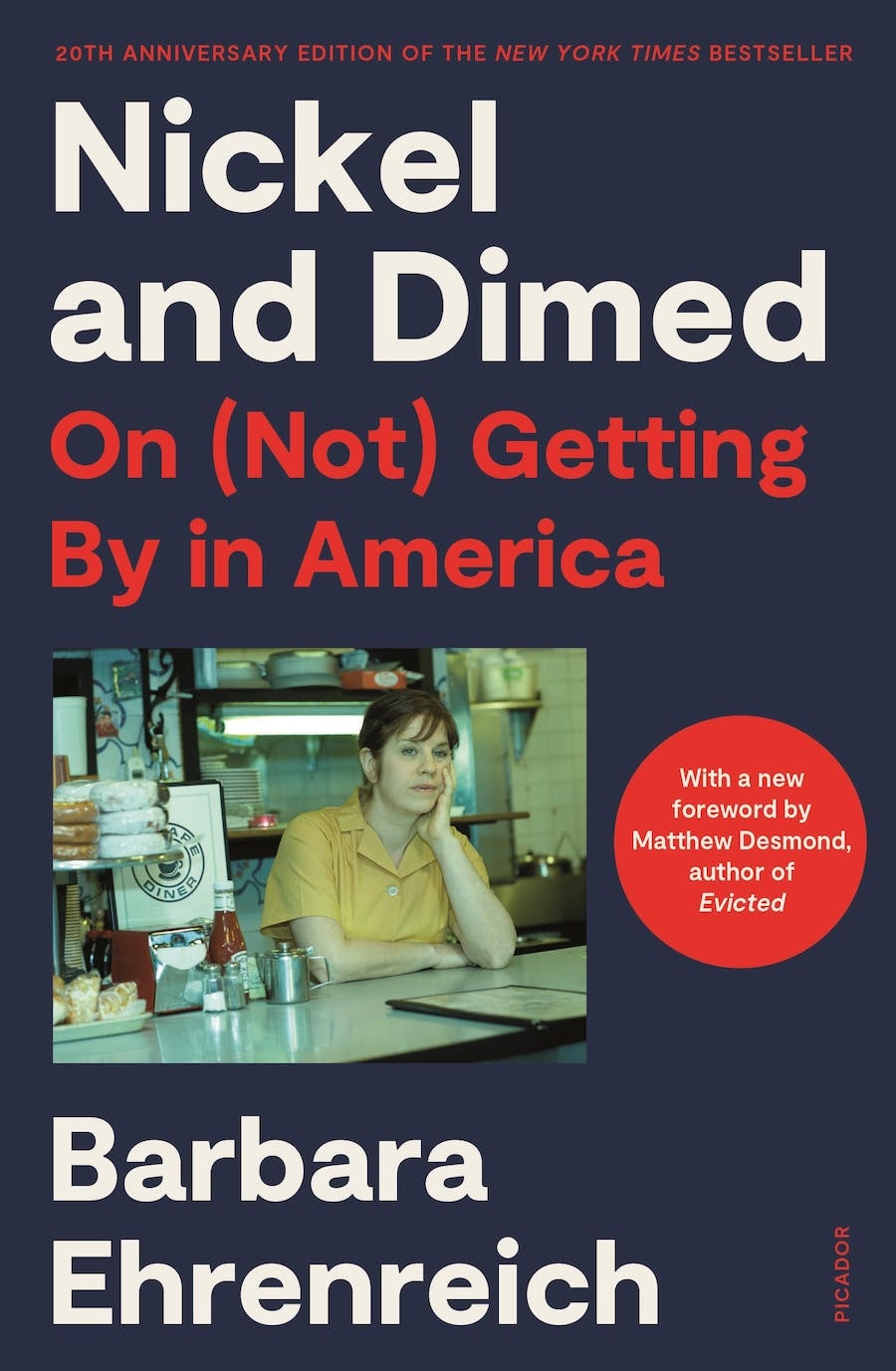 Author, journalist and activist Barbara Ehrenreich, whose Nickel and Dimed: On (Not) Getting By in America (2001) is considered a classic in social justice literature, died September 1 at age 81. In more than 20 books, Ehrenreich tackled a variety of themes: the myth of the American dream, the labor market, health care, poverty and women's rights. Her motivation came from a desire to shed light on ordinary people as well as the "overlooked and the forgotten," said her editor Sara Bershtel.
Author, journalist and activist Barbara Ehrenreich, whose Nickel and Dimed: On (Not) Getting By in America (2001) is considered a classic in social justice literature, died September 1 at age 81. In more than 20 books, Ehrenreich tackled a variety of themes: the myth of the American dream, the labor market, health care, poverty and women's rights. Her motivation came from a desire to shed light on ordinary people as well as the "overlooked and the forgotten," said her editor Sara Bershtel.
Ehrenreich's first book, Long March, Short Spring: The Student Uprising at Home and Abroad (1969, co-authored with husband John Ehrenreich), grew out of her anti-Vietnam War activism. Their second book, The American Health Empire: Power, Profits and Politics, was published the next year. Ehrenreich quit her teaching job in 1974 to become a full-time writer, selling a number of articles to Ms. magazine in the 1970s. In addition to her essays and articles for many publications, Ehrenreich's critically acclaimed books included The Hearts of Men: American Dreams and the Flight from Commitment (1983), Fear of Falling: The Inner Life of the Middle Class (1989), The Worst Years of Our Lives: Irreverent Notes from a Decade of Greed (1990) and Blood Rites: Origins and History of the Passions of War (1997).
Nickel and Dimed, however, "resonated with working Americans and became a turning point in her career," the New York Times wrote. The book's genesis was a casual lunch meeting at which Ehrenreich "was discussing future articles with her editor at Harper's magazine. Then, as she recalled, the conversation drifted. How, she asked, could anyone survive on minimum wage?" The resulting book, Nickel and Dimed, was "an undercover account of the indignities, miseries and toil of being a low-wage worker in the United States." Working as a waitress near Key West, Fla., Ehrenreich "quickly found that it took two jobs to make ends meet. After repeating her journalistic experiment in other places as a hotel housekeeper, cleaning lady, nursing home aide and Wal-Mart associate, she still found it nearly impossible to subsist on an average of $7 an hour. Every job takes skill and intelligence, she concluded, and should be paid accordingly," the Times wrote.
After the book's success, Ehrenreich "applied her immersive journalism technique to works about the dysfunctional side of the American social order," including Bait and Switch: The (Futile) Pursuit of the American Dream (2005), Smile or Die (2009) and a 2014 memoir, Living with a Wild God. Her most recent book, Had I Known: Collected Essays, was published in 2020. A 20th anniversary edition of Nickel and Dimed, with a new foreword by Matthew Desmond (Evicted), was released last year by Picador ($17).


